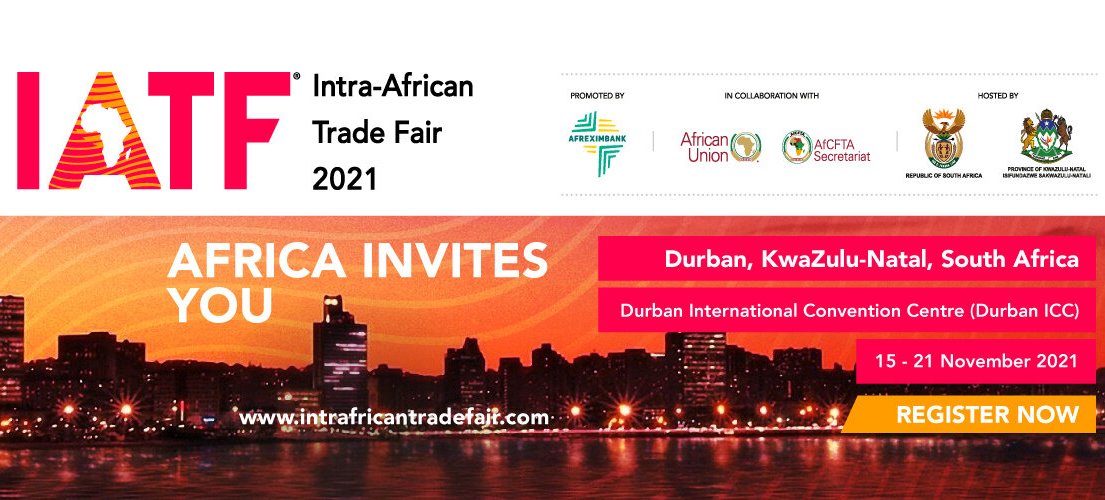The Creative Africa Nexus (CANEX), a programme put in place by the African Export-Import Bank (Afreximbank) to support Africa’s creative and cultural industries, debuted with great fanfare weekend in Durban, South Africa at the second Intra-African Trade fair (IATF 2021).
The event is helping to set the stage to revolutionize the continent’s untapped talents. Already, about $128 million of the $500 million facility set aside as seed capital by Afreximbank for the creatives across Africa has been accessed.
Designed specifically for African creatives including digital innovators and experts, fashion, film, and music actors looking for ways to monetise their content across the digital landscape, the forum is a space to share, discuss and create solutions that will encourage creatives to find innovative ways to use existing technology to increase their remuneration and thrive in their careers.
RELATED APPLY: AfCFTA Youth Creative Competition
Prof. Benedict Oramah, President and Chairman of the Board of Directors of Afreximbank said that before the bank came into action, little attention was paid to the creative art industry, despite its proven ability to inspire unity, trade and investment development for the continent.
Speaking during the CANEX Summit, Prof Oramah said that the young men and women in the creative sector have turned it into tradable services with a global reach, appeal and impact: “At Afreximbank, we fully understand the power of the creative industry to catalyze intra-African trade, create millions of jobs for the continent’s young population, and promote the emergence of national and regional value chains. We also know the power of creatives to catalyze industrial development because this is a bankable industry.”
During an interactive session Prof. Oramah addressed the concerns and questions of the creative artists in attendance, especially on the impact of barriers on movement of goods and people across the continent as an impediment to a free trade area. He said at least 29 of the 55 member countries that had signed the AfCFTA had already ratified the Agreement protocols, making it easier for citizens of their countries to move freely. Other countries were in the process of signing the protocols.
Albert Muchanga, Commissioner for Economic Development, Trade, Industry and Mining, African Union Commission, who also spoke at the Summit reiterated the AU’s position on the creative industry, saying that globally, the Cultural and Creative Industries play a key role in contributing to GDP. Having recognized the importance of the creative industries in achieving the Continent’s Agenda 2063 objectives of regional integration, inclusive and sustainable economic growth and development, the Commission declared 2021 “The AU Year of Arts, Culture and Heritage: Levers for Building the Africa We Want.”
According to Prof. Oramah, about $128 million of the $500 million facility set aside as seed capital by Afreximbank towards CANEX has already been invested in the form of loans to artists and facilitation of initiatives aimed at activating the Nexus. Latest example was 20 African Fashion designers who were taken to the Portugal Fashion Show on an apprenticeship programme as part of the bank’s initiative to globalize Africa’s fashion industry.
Throughout 2020, lockdowns were declared across the world, as was the new norm of working from home. Almost overnight, the digital world became the only means of connecting to work, family, friends and colleagues. The lack of physical events and gatherings had a particularly adverse impact on the creative sector.
However, creatives across Africa and the world rose to this challenge, and despite the many barriers and challenges presented by the COVID-19 pandemic, creatives from across sectors were able to develop innovative ideas and leverage off technologically driven solutions. From 3D fashion shows and virtual concerts, hybrid film festivals and gallery exhibitions, African creatives are already ahead of the game and have a lot to share with their peers and those in other sectors.
































